The latest news can be found on our homepage.
Newsboard (Archive)
We are pleased to present our research at the following conferences:
BMBF-Tagung „Vielfalt und Chancengerechtigkeit in Studium und Wissenschaft: bekannte Fragen – bessere Antworten – bewährte Praxisansätze“, 5. - 6. September 2023, Berlin:
Chancengerechtigkeit im Lehramtsstudium durch Digitalisierung: Ein kritischer Blick auf digitale Lehr-Lern-Interventionen und ihre Potentiale. Liederbach, N., Zlatkin-Troitschanskaia, O., Reichert-Schlax, J., Frank, K., Schell, M., Dormann, C. & Brückner, S.
Jahrestagung 2023 der Sektion Berufs- und Wirtschaftspädagogik der Deutschen Gesellschaft für Erziehungswissenschaft (BWP), 6. - 8. September 2023, Flensburg:
Nutzung analoger Unterrichtsmaterialien durch LehramtsreferendarInnen - Analyse der Auswahlkriterien und tatsächlichen Mediennutzung. Fischer, J., Zlatkin-Troitschanskaia, O., Nagel, M.-T., Martin de los Santos, L. & Maur, A.
Förderung mediendidaktischer Lehrkompetenzen durch multimediale Lehr-Lerntools – Einfluss des Studienfortschritts auf den Kompetenzerwerb. Frank, K., Reichert-Schlax, J., Zlatkin-Troitschanskaia, O., Dormann, C. & Brückner, S.
Digitale Kompetenzen und Einstellungen angehender Lehrkräfte zur Nutzung digitaler Lernmedien als Ausgangslage für digitale Lehre. Liederbach, N., Reichert-Schlax, J., Zlatkin-Troitschanskaia, O., Frank, K., Schell, M., Brückner, S. & Dormann, C.
Digitale Lehr-Lerntools zur Förderung handlungsnaher Kompetenzen angehender Lehrkräfte – Konzeption und Entwicklung. Schell, M., Zlatkin-Troitschanskaia, O., Frank, K., Reichert-Schlax, J., Liederbach, N., Dormann, C. & Brückner, S.
Relevance and Applicability of International Vocational Education and Training (VET) Research Projects and Implications for Further Research and Practice. Zlatkin-Troitschanskaia, O., Olivier, C., Toepper, M. & Liederbach, N.
Sektionstagung empirische Bildungsforschung der Arbeitsgruppe für Empirische Pädagogische Forschung (AEPF), 13. - 15. September 2023, Potsdam:
Entwicklung und Validierung eines digitalen Trainings zur Erfassung und Förderung des kritischen Umgangs mit Online-Informationen bei LehramtsreferendarInnen im Fach Wirtschaft. Kohmer, A., Zlatkin-Troitschanskaia, O., Nagel, M.-T. & Fischer, J.
13. Fachtagung der Fachgruppe Arbeits-, Organisations- & Wirtschaftspsychologie der DGPs, 13. - 15.9.2023, Kassel:
Moral Stress at Work: Development and Validation of Occupational Moral Impact Scales (OMIS). Müller, A. & Dormann, C.
Joint Congress of the International Commission on Occupational Health-Work Organization (ICOH-WOPS) and Psychological Factors & Asia Pacific Academy for Psychological Factors at Work (APA-PFAW), 19. - 22. September 2023, Tokyo, Japan:
Incorporating Time in Job Stress Models, Concepts, Measures, Measurement Occasions, and Statistical Analyses. Dormann, C.
Chinese University of Hong Kong, 26. - 27. September 2023: Continuous time structural equation modelling (CTSEM). Dormann, C.

We are pleased to present our research from BRIDGE and TWIND at EARLI 2023, August 22-26, in Greece:
Regular media use and learning effects on the ability to critically reason with digital media
Braunheim, D. [Poster Prasentation]
Promoting Media-Didactic Skills through Multimedia Tools – Influencing Factors on Learning Success
Frank, K., Zlatkin-Troitschanskaia, O., Reichert-Schlax, J., Dormann, C., & Brückner, S. [Single Paper]
Measurement and Promotion of Critical Online Reasoning Skills among Young Professionals
Martin de los Santos Kleinz, L., Zlatkin-Troitschanskaia, O., Nagel, M-T. & Federiakin, D. [Single Paper]
For more information on the presentations, please see the conference program.
 Study! But what?
Study! But what?
What does one do in Business and Economics Education?
Franziska and Julia ask Holger about his studies in business and economics education. He tells them about the content of this exciting combination and about the many career opportunities after graduation.
You can find the podcast at the following Link (the podcast is only available in german)
 Publication of the dissertation by Dr. Andreas Maur at Springer
Publication of the dissertation by Dr. Andreas Maur at Springer
Maur, A. (2023). Electronic Feedback in Large University Statistics Courses. The Longitudinal Effects of Quizzes on Motivation, Emotion, and Cognition. Springer.
Abstract: Digital tools and pedagogies in public higher education are unfolding their potential by providing large groups of students with automated, continuous learning and feedback opportunities. However, most of the existing studies are cross-sectional, unidirectional and focus on a limited selection of relevant target variables and instructional features. In a field study, Andreas Maur used longitudinal latent structural equation modelling with a large sample of students to analyse the interrelations between formative feedback from electronic quizzes and different facets of the control value theory of achievement emotions. The results suggest that regular quizzes most consistently improve expectancy-value and emotional appraisals over time. These findings highlight the need to cultivate feedback systems with higher levels of sophistication, adaptability, and gamification mechanics.
Link to the e-book: https://link.springer.com/book/10.1007/978-3-658-41620-1
![]()
We are pleased to present our research at the 21st European Congress of Work and Organizational Psychology (EAWOP) Congress in Katowice, Poland:
Dormann, C. & Driver, C. (2023). Traits Out – Stress Gone? A Random Intercept Continuous Time Meta-Analysis (RI-CoTiMA) of Workload-Burnout Relations. 21st European Congress of Work and Organizational Psychology, Katowice, Poland, Mai 24 – 27, 2023.
Che Mat, N., Idris, M. A., & Dormann, C. (2023). The competing effect of within-person vs between-person of three types of job stressors on burnout. 21st European Congress of Work and Organizational Psychology, Katowice, Poland, Mai 24 – 27, 2023.
Dormann, C. (2023). The future is (almost) now: Changing the world of analysing time in occupational health psychology research (Part 1 & 2) - Introduction to the Symposium. 21st European Congress of Work and Organizational Psychology, Katowice, Poland, Mai 24 – 27, 2023.
Plückhahn, W., Rigotti, T., & Dormann, C. (2023). Challenging unidirectionality. A continuous time meta-analysis of short-term reciprocal effects of relational resources and negative affect. 21st European Congress of Work and Organizational Psychology, Katowice, Poland, Mai 24 – 27, 2023.
Müller, A., Guthier, C. & Dormann, C. (2023). Longitudinal moderation effects of personality on reciprocal relations between burnout and illegitimate tasks. 21st European Congress of Work and Organizational Psychology, Katowice, Poland, Mai 24 – 27, 2023.
For more information on the presentations, please see the conference program.

What I wish I had known about business and economics education as a first semester
You can find the article under the following Link. (the article is only available in german)
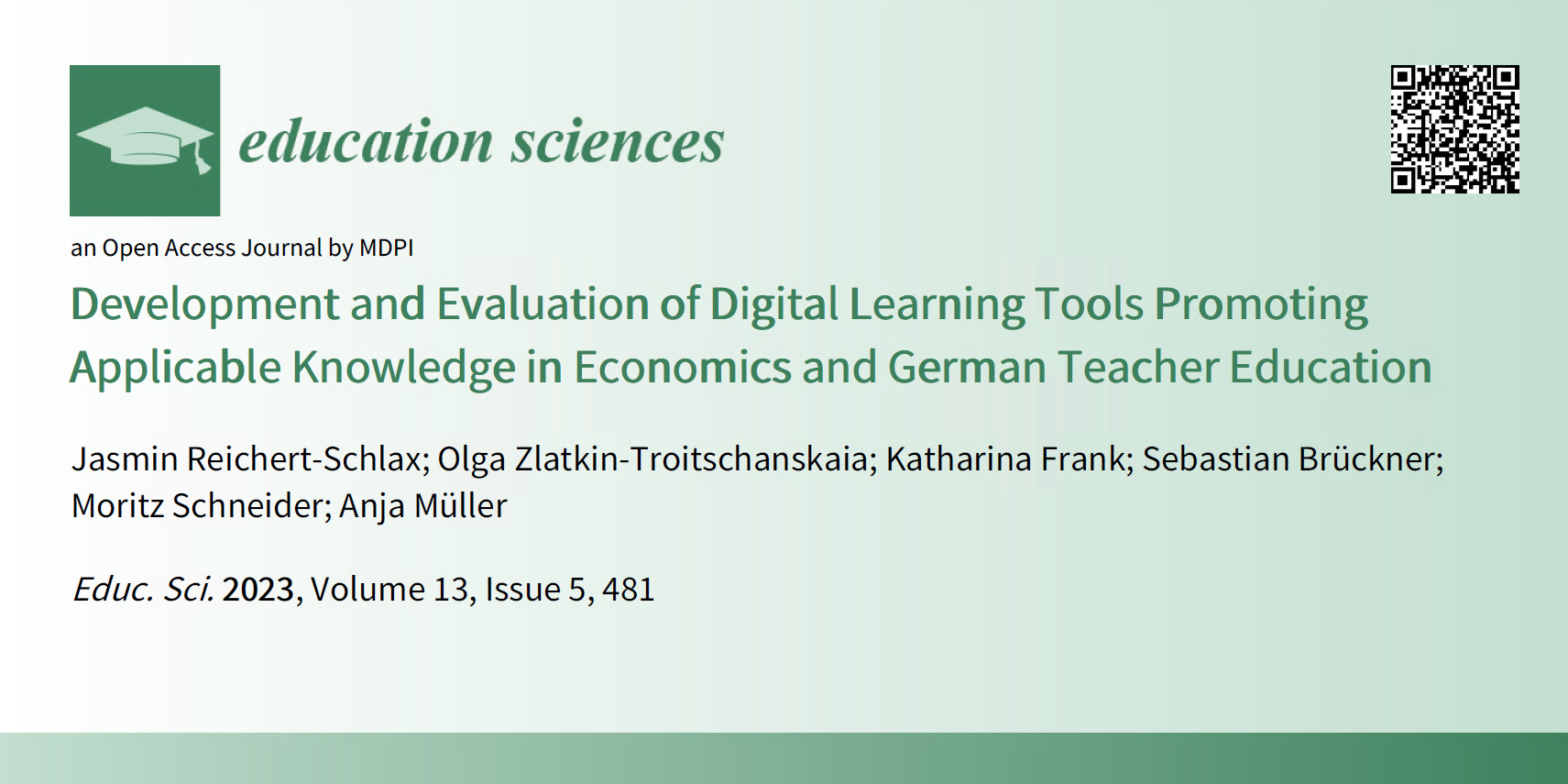
Reichert-Schlax, J., Zlatkin-Troitschanskaia, O., Frank, K., Brückner, S., Schneider, M. & Müller, A. (2023). Development and Evaluation of Digital Learning Tools Promoting Applicable Knowledge in Economics and German Teacher Education. Education Sciences, 13(5), 481.
Abstract: Digital teaching interventions allow for tailor-made university teaching. This is especially relevant for teacher education, where applicable professional teaching knowledge needs to be promoted for later professional success. Digital teaching tools have been shown to be a promising supplement for this purpose. Even though the corresponding demands in teacher education have been increasing in recent years, the need to develop digital learning tools usable in instruction is still urgent. The TWIND project develops digital learning tools for teacher education and evaluates them in a quasi-experimental design. The present work investigates the usability and application of these newly developed tools. Sixty-three trainee teachers worked independently over four weeks with one of two digital learning tools, focusing on either ‘Multilingualism in Classrooms’ or ‘Professional Communication in Classrooms.’ This study includes a pre–post-test of pedagogical knowledge facets as well as student and instructor ratings on the digital tools. The digital learning tools led to a positive change in the respective target facets of pedagogical knowledge. The student and instructor feedback reflected positively on the usability and usefulness of the new digital tools. Based on these findings, the limitations of the study as well as implications for further research and teacher education practice have been outlined.
Website: https://www.mdpi.com/2227-7102/13/5/481
PDF version: https://www.mdpi.com/2227-7102/13/5/481/pdf
 We are pleased to announce that the new Research Unit “Critical Online Reasoning in Higher Education (CORE)” has received funding from the German Research Foundation (DFG) for an initial period of four years (2023 – 2027). This interdisciplinary collaborative and international research unit aims to explore online learning behaviors and the online information landscapes that students in medicine, physics, business, and social sciences use for their studies. Besides Johannes Gutenberg University, Goethe University Frankfurt am Main, Ludwig Maximilian University Munich (LMU) and the Leibniz Institute for Human Development (DIPF), international partners from renowned North American universities including Stanford and Harvard will be participating in the research unit.
We are pleased to announce that the new Research Unit “Critical Online Reasoning in Higher Education (CORE)” has received funding from the German Research Foundation (DFG) for an initial period of four years (2023 – 2027). This interdisciplinary collaborative and international research unit aims to explore online learning behaviors and the online information landscapes that students in medicine, physics, business, and social sciences use for their studies. Besides Johannes Gutenberg University, Goethe University Frankfurt am Main, Ludwig Maximilian University Munich (LMU) and the Leibniz Institute for Human Development (DIPF), international partners from renowned North American universities including Stanford and Harvard will be participating in the research unit.
For further information, please click here.
 Doctorate Jasmin Reichert-Schlax
Doctorate Jasmin Reichert-Schlax
Jasmin Reichert-Schlax has successfully passed the disputation in her doctoral thesis on 19.04.2023. The dissertation is entitled: "Types of academic success in economics and social sciences - An analysis of person-related conditioning factors of academic success over the course of the bachelor's degree program." We sincerely congratulate Ms. Reichert-Schlax on her outstanding doctorate.
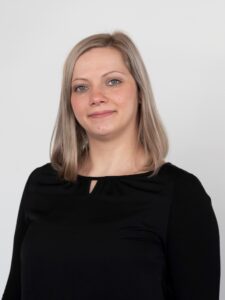
Dr. Olga Diener receives the Dissertation Award of the Alfred Teves Foundation
Dr. Olga Diener receives the Dissertation Award of the Alfred Teves Foundation for the year 2022 in recognition of her excellent dissertation. The dissertation is entitled "Mediator and moderator effects of cognitive evaluation in the intraindividual demand coping process of young teachers: Qualitative approaches and quantitative multi-level analyses of event sampling data ".
Dr Olga Diener will receive her award on 16 June 2023 at the DIES Academicus of Johannes Gutenberg University. The chairs of Business and Economics Education congratulate her warmly on this award for her work.

Dr. Andreas Maur receives departmental award for his dissertation
In recognition of his excellent dissertation, Dr. Andreas Maur receives the Departmental Award of Law and Economics for 2022. The dissertation is entitled „The longitudinal impact of formative quiz feedback on students’ motivational, emotional, and cognitive learning outcomes in a large statistics lecture".
In his longitudinal study, he used autoregressive structural equation models to investigate the impact of electronic feedback on motivational and emotional learning outcomes of bachelor students throughout a semester of a large statistics lecture .
Dr. Andreas Maur will receive his award on 17 November 2023 during the doctoral graduation ceremony at Johannes Gutenberg University. The chairs of Business and Economics Education congratulate him warmly on this award for his work.
 Doctorate Miriam Toepper
Doctorate Miriam Toepper
Miriam Toepper has successfully passed the disputation in her doctoral thesis on 14.02.2023. The dissertation is entitled: "Assessment of critical thinking of students in the German higher education sector - validity analysis of an international adapted test". We sincerely congratulate Ms. Toepper on her outstanding doctorate.
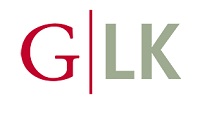 We are pleased to announce the funding of the innovative teaching project “Development of digital microlearning units to promote media (subject) didactic competence and scientific methodological competence in business education studies” (EDiMiLE; runtime 04/2023-03/2024). Under the direction of Dr. Andreas Maur, Katharina Frank and Jasmin Reichert-Schlax, the project addresses the promotion of media(subject)didactic and scientific methodological competencies of students.
We are pleased to announce the funding of the innovative teaching project “Development of digital microlearning units to promote media (subject) didactic competence and scientific methodological competence in business education studies” (EDiMiLE; runtime 04/2023-03/2024). Under the direction of Dr. Andreas Maur, Katharina Frank and Jasmin Reichert-Schlax, the project addresses the promotion of media(subject)didactic and scientific methodological competencies of students.
 Doctorate Olga Diener
Doctorate Olga Diener
Olga Diener successfully passed the disputation in her doctoral dissertation on 22.12.2022. The dissertation is entitled: "Mediator and moderator effects of cognitive appraisal in the intraindividual demand coping process of young teachers: qualitative approaches and quantitative multilevel analyses of event sampling data". We warmly congratulate Ms. Diener on her outstanding doctoral dissertation.
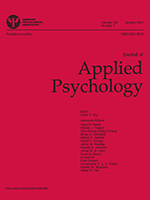
Xu, X., Zhao, P., Hayes, R., Le, N., & Dormann, C. (in press). Revisit the causal inference between organizational commitment and job satisfaction: A meta-analysis disentangling its sources of inconsistencies. Journal of Applied Psychology.
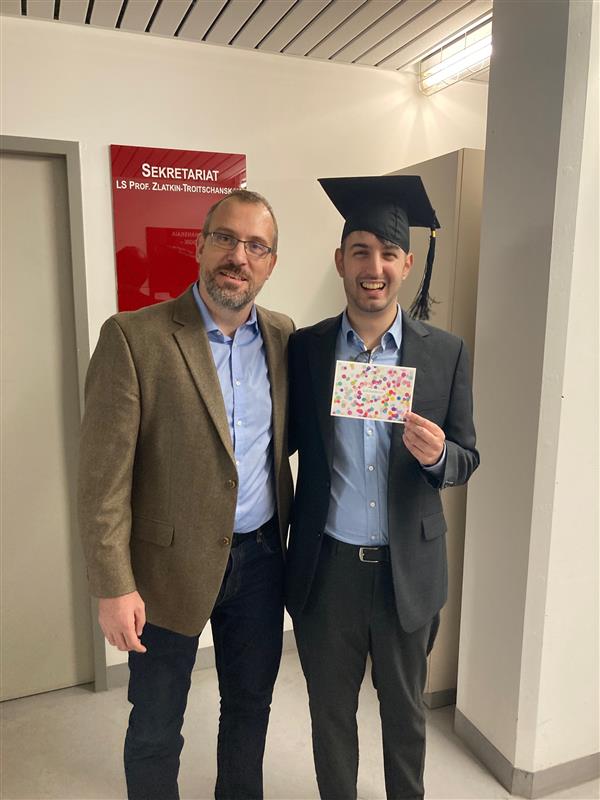 Promotion Andreas Maur
Promotion Andreas Maur
Andreas Maur successfully passed the disputation in his doctoral thesis on 03.11.2022. The dissertation is entitled: "The longitudinal impact of formative quiz feedback on students' motivational, emotional, and cognitive learning outcomes in a large statistics lecture". We would like to congratulate Mr. Maur on his outstanding doctorate.

SIOP Award Winners
Meet Christina Guthier, Christian Dormann, and Manuel Voelkle, the Schmidt-Hunter Meta-Analysis SIOP Award Winners!
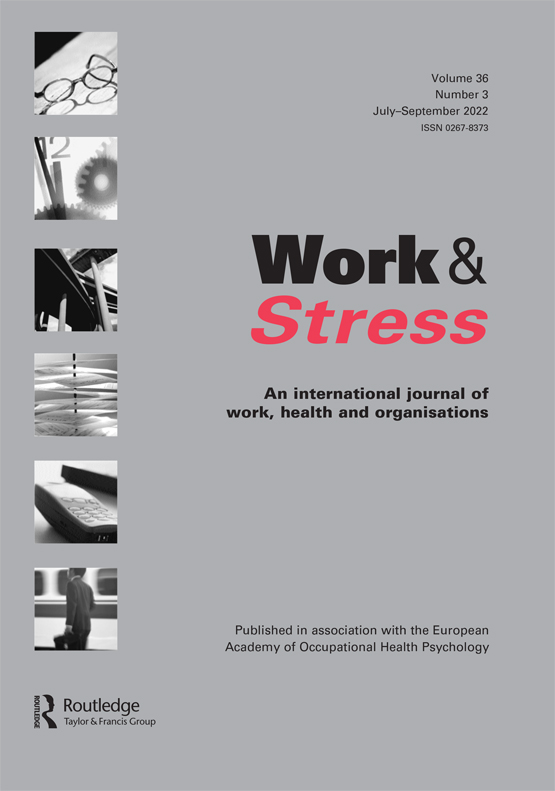
![]() We are pleased to be able to present our research work at the following events:
We are pleased to be able to present our research work at the following events:

EARLI SIG11 Conference 2022 Digital Transformation in Teaching and Teacher Education:
Frank, K., Reichert-Schlax, J., Zlatkin-Troitschanskaia, O., Brückner, S., Schneider, M., Dormann, C. & Müller, A. (2022, Jun 24). The Effect of Student Teachers’ Media Use on the Acquisition of Teaching Skills Using Digital Tools [Paper presentation]. EARLI SIG11 Conference 2022 Digital Transformation in Teaching and Teacher Education, Oldenburg, Germany.
EARLI SIG1&4 Conference 2022 Exploring research synergies to learn from each other:
Frank, K., Reichert-Schlax, J., Zlatkin-Troitschanskaia, O., Brückner, S., Schneider, M., Dormann, C. & Müller, A. (2022, Jun 29). Evaluation of Teaching-And-Learning Tools to Promote Prospective Teachers Skills in Higher Education [Paper presentation]. EARLI SIG1&4 Conference 2022 Exploring research synergies to learn from each other, Cádiz, Spain.
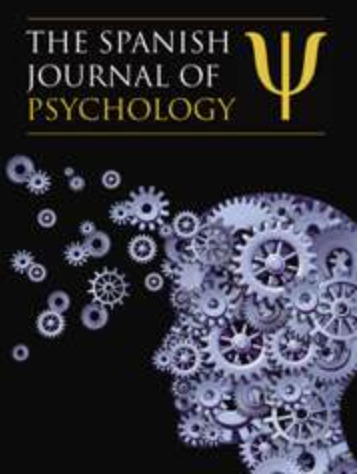
Abstract:
The focal article by Griep and colleagues raises some highly important issues and it is timely to further advance organizational behavior (OB) and work and organizational psychology (WOP). It comes at the right time because the last two decades can be characterized by two opposing trends. continue
![]() The conference season starts again! We are pleased to be able to present our research work at the following events:
The conference season starts again! We are pleased to be able to present our research work at the following events:

GEBF 2022 "Alles auf Anfang – Bildung im Digitalen Wandel" on March 9th - 11th, 2022.
Reichert-Schlax, J., Zlatkin-Troitschanskaia, O., Brückner, S., Frank, K., Müller, A. & Dormann, C. (2022). Evaluation digitaler Lehr-Lern-Pakete zur Förderung allgemeindidaktischer Kompetenzen angehender Lehrkräfte – Ergebnisse aus einem Prä-Post-Kontrollgruppendesign. (Symposiumsbeitrag)
For more information please click here.
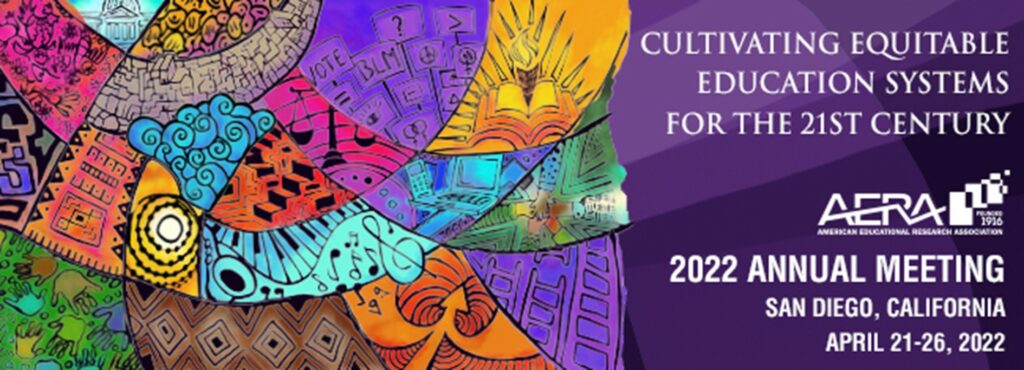
AERA 2022
For current information please click here.
Fischer, J., Zlatkin-Troitschanskaia, O., Bültmann, A.-K., Nagel, M.-T. & Maur, A. (2022). Domain-specificity of online information use in solving job-related tasks in law, medicine, and teaching. (Paper)
Toepper, M., Kühling-Thees, C. & Zlatkin-Troitschanskaia, O. (2022). Meta-Analysis of Empirical International Research on Transfer in Vocational Education and Training – Frontiers and Advances. (Paper)
Reichert-Schlax, J. & Zlatkin-Troitschanskaia, O. (2022). Study success profiles in higher education economics and their influencing factors — A holistic analysis. (Poster)
Kohmer, A. & Zlatkin-Troitschanskaia, O. (2022). Development and implementation of a training to assess and improve university students’ critical online reasoning. (Poster)
Braunheim, D. & Zlatkin-Troitschanskaia, O. (2022). Dealing with Uncertainty and Ambiguity while Assessing Multiple Contradictory Sources. (Paper)

WERA 2022
For current information please click here.
Bültmann, A.-K., Zlatkin-Troitschanskaia, O., Schmidt, S., Nagel, M.-T., Fischer, J., Maur, A. & Brückner, S. (2022). Performance Indicators of Online Information Processing Behaviors of Young Professionals while Solving Critical Reasoning Tasks. (Paper)
Konca, M., Lücking, A., Mehler, A., Nagel, M.-T. & Zlatkin-Troitschanskaia, O. (2022). Computational educational linguistics for “Critical Online Reasoning” among young professionals in medicine, law and teaching. (Paper)
Kühling-Thees, C., Toepper, M. & Zlatkin-Troitschanskaia, O. (2022). Outcomes of the German Funding Program for the Internationalization of Vocational Education and Training Research.
Frank, K., Zlatkin-Troitschanskaia, O., Schlax, J., Brückner, S. & Dormann, C. (2022). Promotion of prospective teachers’ didactic (adaptive) competencies using digital multimedia learning packages — An evaluation study. (Paper)
Maur, A., Zlatkin-Troitschanskaia, O., Bültmann, A.-K., Shenavai, K., Fischer, J., Nagel, M.-T. & Schmidt, S. (2022). Profiles of Generic Critical Online Reasoning among Young Professionals in Medicine, Law and Teaching. (Paper)
Magel, M.-T., Zlatkin-Troitschanskaia, O., Bültmann, A.-K., Fischer, J. Schmidt, S., Maur, A. & Brückner, S. (2022). The Relationship between Web Search Behaviour and Website Characteristics, and Young Professionals’ Critical Online Reasoning. (Paper)
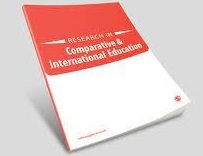 Federiakin, D., Zlatkin-Troitschanskaia, O., Kardanova, E., Kühling-Thees, C., Reichert-Schlax, J., & Koreshnikova, Y. (2022). Cross-National Structure of Economics Competence: Insights from a German and Russian Assessment. Research in Comparative and International Education, online. doi:10.1177/17454999211061243
Federiakin, D., Zlatkin-Troitschanskaia, O., Kardanova, E., Kühling-Thees, C., Reichert-Schlax, J., & Koreshnikova, Y. (2022). Cross-National Structure of Economics Competence: Insights from a German and Russian Assessment. Research in Comparative and International Education, online. doi:10.1177/17454999211061243
Abstract:
In this paper, we present a study, which models and measures the competencies of higher education students in business and economics - within and across countries. To measure student competencies in a valid and reliable way, the Test of Understanding in College Economics is used, which assesses microeconomic and macroeconomic competencies. continue
 Reichert-Schlax, J., Zlatkin-Troitschanskaia, O., Happ, R., Yamaoka, M., Asano, T., & Abe, S. (2022). Economic literacy among beginning higher education economics students in Japan and Germany and its socio-demographic influencing factors. Research in Comparative and International Education, online. https://doi.org/10.1177/17454999211057621
Reichert-Schlax, J., Zlatkin-Troitschanskaia, O., Happ, R., Yamaoka, M., Asano, T., & Abe, S. (2022). Economic literacy among beginning higher education economics students in Japan and Germany and its socio-demographic influencing factors. Research in Comparative and International Education, online. https://doi.org/10.1177/17454999211057621
Abstract:
In view of cross-national student mobility and increasing internationalization of the labor market, a common understanding of economic concepts as well as awareness for country-specific factors influencing economics education is essential. Therefore, the development of instruments that allow for comparable investigation across countries is crucial. continue
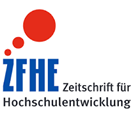 Kühling-Thees, C., Reichert-Schlax, J., & Zlatkin-Troitschanskaia, O. (2021). Eine Längsschnittsanalyse der Studieneingangs- und Studienprozessfaktoren auf den Studienerfolg im wirtschaftswissenschaftlichen Bachelorstudium. Zeitschrift für Hochschulentwicklung, 16(4), 97-117.
Kühling-Thees, C., Reichert-Schlax, J., & Zlatkin-Troitschanskaia, O. (2021). Eine Längsschnittsanalyse der Studieneingangs- und Studienprozessfaktoren auf den Studienerfolg im wirtschaftswissenschaftlichen Bachelorstudium. Zeitschrift für Hochschulentwicklung, 16(4), 97-117.
Abstract:
Studieneingangsvoraussetzungen, wie das Vorwissen, gelten als wesentliche Prädiktoren für den Studienerfolg. Studienanfänger/innen in den Wirtschaftswissenschaften zeichnen sich durch eine große Heterogenität zu Studienbeginn aus. In einer Längsschnittstudie wird betrachtet, inwiefern die heterogenen Studieneingangsvoraussetzungen den Studienerfolg erklären und wie dieser Zusammenhang unter Berücksichtigung der studienprozessbezogenen Einflussfaktoren sich verändert. continue
 Roeper, J., Reichert-Schlax, J., Zlatkin-Troitschanskaia, O. Klose, V., Weber, M., & Nagel, M.-T. (2022). Patterns of domain-specific learning among medical undergraduate students in relation to confidence in their physiology knowledge - Insights from a pre-post study. Frontiers in Psychology, online. https://doi.org/10.3389/fpsyg.2021.562211
Roeper, J., Reichert-Schlax, J., Zlatkin-Troitschanskaia, O. Klose, V., Weber, M., & Nagel, M.-T. (2022). Patterns of domain-specific learning among medical undergraduate students in relation to confidence in their physiology knowledge - Insights from a pre-post study. Frontiers in Psychology, online. https://doi.org/10.3389/fpsyg.2021.562211
Abstract:
Research Focus: The promotion of domain-specific knowledge is a central goal of higher education and, in the field of medicine, it’s especially essential to promote global health. Domain-specific knowledge on its own is not exhaustive; confidence regarding the factual truth of this knowledge content is also required. continue
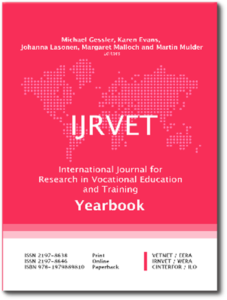 Toepper, M., Zlatkin-Troitschanskaia, O., & Kühling-Thees, C. (2021). Research in International Transfer of Vocational Education and Training – A Systematic Literature Review. International Journal for Research in Vocational Education and Training (IJRVET), 8(4), 138-169. https://doi.org/10.13152/IJRVET.8.4.7
Toepper, M., Zlatkin-Troitschanskaia, O., & Kühling-Thees, C. (2021). Research in International Transfer of Vocational Education and Training – A Systematic Literature Review. International Journal for Research in Vocational Education and Training (IJRVET), 8(4), 138-169. https://doi.org/10.13152/IJRVET.8.4.7
Abstract:
Context: The transfer of vocational education and training (VET) has a long tradition and can be based on various conceptual and methodical approaches. Transfer process and success can be influenced by numerous factors at different levels (systemic, institutional and individual). However, the existing research on the challenges and success factors of VET transfer is very heterogenous and fragmented. continue
 Cortina, J., Dormann, C., Markell, H., & Keener, S. (in press). Endogenous moderator models: What they are, what they aren’t, and why it matters. Organizational Research Methods.
Cortina, J., Dormann, C., Markell, H., & Keener, S. (in press). Endogenous moderator models: What they are, what they aren’t, and why it matters. Organizational Research Methods.
Abstract:
Models that combine moderation and mediation are increasingly common. One such model is that in which one variable causes another variable that, in turn, moderates the relationship between two other variables. There are many recent examples of these Endogenous Moderator Models (EMMs). continue

Research Topic
Zlatkin-Troitschanskaia, O., Alexander, P. A., & Pellegrino, J. W. (2021). Assessing Information Processing and Online Reasoning as a Prerequisite for Learning in Higher Education. Frontiers Research Topic. https://www.frontiersin.org/research-topics/12111/assessing-information-processing-and-online-reasoning-as-a-prerequisite-for-learning-in-higher-educa#articles
Examples of published articles in this volume:
Solano-Flores, G. (2021). The Semiotics of Test Design: Conceptual Framework on Optimal Item Features in Educational Assessment Across Cultural Groups, Countries, and Languages. Frontiers Research Topic. doi: https://doi.org/10.3389/feduc.2021.637993
Leighton, J. P., Cui, Y. & Cutumisu, M. (2021). Key Information Processes for Thinking Critically in Data-Rich Environments. Frontiers Research Topic. https://doi.org/10.3389/feduc.2021.561847
Tkotz, J., Kienhues, D., Jucks, R. & Bromme, R. (2021). Keep Calm in Heated Debates: How People Perceive Different Styles of Discourse in a Scientific Debate. Frontiers Research Topic. https://doi.org/10.3389/feduc.2020.572503
Lücking, A., Brückner, S. Abrami, G., Uslu, T. & Mehler A. (2021). Computional Linguistic Assessment of Textbooks and Online Texts by Means of Threshold Concepts in Economics. https://doi.org/10.3389/feduc.2020.578475
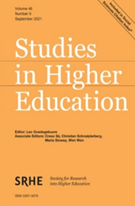
Zlatkin-Troitschanskaia, O., Hartig, J., & Goldhammer, F. (2021). Progressions in Learning in the Age of (Mis)Information – Advances in Higher Education Learning Research [Special Issue]. Studies in Higher Education.
Examples of Published Articles in this volume:
Banerjee, M., & Zlatkin-Troitschanskaia, O. (2021). The gap between knowledge and belief: narrative, affect and students´ deeper learning in higher education. Studies in Higher Education. DOI: 10.1080/03075079.2021.1953330
Zlatkin-Troitschanskaia, O., Hartig, J., Goldhammer, F., & Krstev, J. (2021). Students’ online information use and learning progress in higher education – A critical literature review. Studies in Higher Education DOI: https://doi.org/10.1080/03075079.2021.1953336
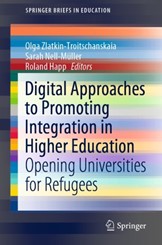 Zlatkin-Troitschanskaia, O., Nell-Müller, S., & Happ, R. (Eds.) (2021). Digital Approaches to Promoting Integration in Higher Education – Opening Universities to Refugees. Springer Briefs in Education. Springer International Publishing. DOI: 10.1007/978-3-030-77151-5
Zlatkin-Troitschanskaia, O., Nell-Müller, S., & Happ, R. (Eds.) (2021). Digital Approaches to Promoting Integration in Higher Education – Opening Universities to Refugees. Springer Briefs in Education. Springer International Publishing. DOI: 10.1007/978-3-030-77151-5
About this book:
This book discusses digital learning opportunities in higher education for refugees with different educational, social, cultural and linguistic backgrounds. continue
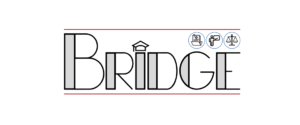 Zlatkin-Troitschanskaia, O., Brückner, S., Nagel, M.-T., Bültmann, A.-K., Fischer, J., Schmidt, S., & Molerov, D. (2021). Performance Assessment and Digital Training Framework for Young Professionals' Generic and Domain-specific Online Reasoning in Law, Medicine, and Teacher Practice. Journal of Supranational Policies of Education, 13, 9-36.
Zlatkin-Troitschanskaia, O., Brückner, S., Nagel, M.-T., Bültmann, A.-K., Fischer, J., Schmidt, S., & Molerov, D. (2021). Performance Assessment and Digital Training Framework for Young Professionals' Generic and Domain-specific Online Reasoning in Law, Medicine, and Teacher Practice. Journal of Supranational Policies of Education, 13, 9-36.
Abstract:
In the digital age, the Internet is increasingly considered a major information source. This is especially true for informal, e.g., post-university, learning. Evidentially, young professionals are increasingly using online sources as an information and learning tool. Critical reasoning from online information for learning and professional processes in the domains of medicine, law, and teaching is considered a highly relevant competence facet. continue

The secretariat of the chair of Prof. Zlatkin-Troitschanskaia will not be available during August 2nd till 6th 2021.
![]() The conference season continues! We are pleased to be able to present our research work at the following events:
The conference season continues! We are pleased to be able to present our research work at the following events:

digiGEBF Thementagung Hochschule 2021 am 17.-18. Juni 2021
Reichert-Schlax, J., Brückner, S., Saas, H. & Zlatkin-Troitschanskaia, 0. (2021).
Entwicklung und Evaluation multimedialer Lernpakete zur Förderung allgemeindidaktischer Kompetenzen angehender Lehrkräfte.
Updates zum Programm hier
![]()
Jahrestagung der NCME am 8.-11. Juni 2021
11.06.2021, 19-20 Uhr, Research Blitz
Knowledge Acquisition in Higher Education Economics and its Relation to Students` Confidence
Schlax, J., Zlatkin-Troitschanskaia, O. & Nagel, M.

Jahrestagung der ITC am 9.-12. Juli 2021
10.7.21 Room B 14:15 to 15:00. Q&A session in Meeting Room ZOOM-3 at 15:15 to 15:30, Paper presentation
Assessment of Higher Education Students’ Economic Knowledge in Germany and Japan – A
cross-national perspective on gender effects
Schlax, J., Zlatkin-Troitschanskaia, O., Walstad, W. B., Yamaoka, M., Asano, T., Abe, S. & Nagel, M.
10.7.21 Room C 11:00 to 11:45 Paper presentation.
Q&A session in Meeting Room ZOOM-5 at 13 to 13:15
Assessment of Knowledge Development Over the Course of a Bachelor`s Degree – Analyzing Dis-tinct Learning Patterns Using Internationally Established Standardized Tests

Zadow, A. J., Dollard, M. F., Dormann, C. & Landsbergis, P. (in press). Predicting new major depression symptoms from long working hours, psychosocial safety climate and work engagement. A population-based cohort study. BMJ Open. https://doi.org/bmjopen-2020-044133
Abstract:
![]()
Presentations Annual Conference AERA 2021

Saas, S., Zlatkin-Troitschanskaia, O., Reichert-Schlax, J., Brückner, S., Kuhn, C. & Dormann, C. (2021, April 9). Development and Evaluation of Digital Multimedia Packages to Improve Situation-Specific Instructional Skills in Teacher Education [Poster presentation]. Annual Meeting of the American Educational Research Association (AERA), Online.
At present (in times of COVID-19), digitalizing teaching and supplementing learning with new online elements is becoming particularly important. Especially in higher education, there is a demand for innovative teaching-learning tools and for formative assessments to be able to educate highly heterogeneous student groups in a targeted manner. continue
For more information click here.
![]()
Presentation BMBF Conference„Viele Wege führen zum Erfolg - Ein Dialog zwischen Forschung und Praxis über Studienerfolg und Studienabbruch“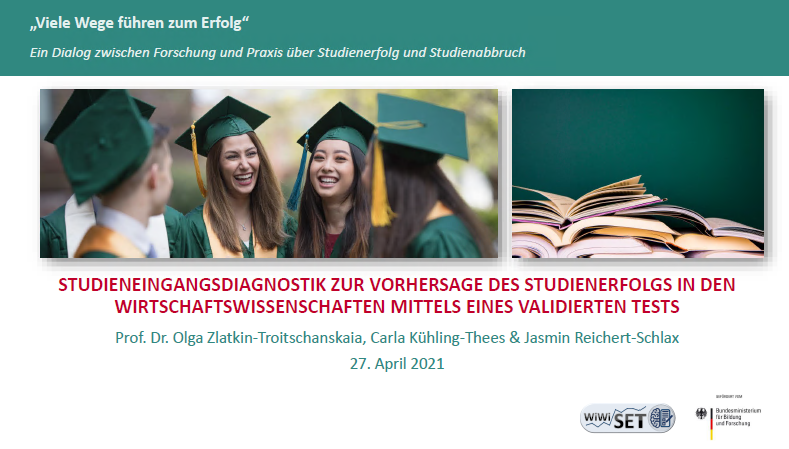
Zlatkin-Troitschanskaia, O., Kühling-Thees, O., & Reichert-Schlax, J. (2021). Studieneingangsdiagnostik zur Vorhersage des Studienerfolgs in den Wirtschaftswissenschaften mittels eines validierten Tests. Vortrag auf der BMBF Tagung „Viele Wege führen zum Erfolg - Ein Dialog zwischen Forschung und Praxis über Studienerfolg und Studienabbruch“ am 27.04.2021 (online).
For more information click here.
![]() Digitales Konferenzjahr der Gesellschaft für Empirische Bildungsforschung (digiGEBF)
Digitales Konferenzjahr der Gesellschaft für Empirische Bildungsforschung (digiGEBF)
The role of individual beliefs when critically dealing with contradictory information from multiple sources
Nagel, M., Troitschanskaia, O., Jurisch, J. & Schmidt, S.
Students’ Critical Online Reasoning and its Influences
Nagel, M., Troitschanskaia, O., Schmidt, S., Jurisch, J. & Molerov, D.
ERASMUS+ Initiative: Shaping the way Higher Education Institutions do Research and Innovation with and for Society (R&I LOOP) 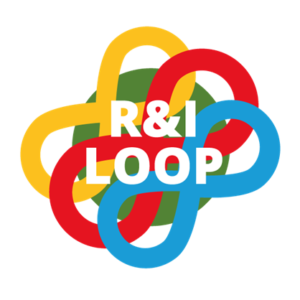

We are pleased to announce the new EU funded ERASMUS+ Initiative: Shaping the way Higher Education Institutions do Research and Innovation with and for Society (R&I LOOP). This project is a collaborative effort between five partners across four European countries (Portugal, Spain, Italy and Germany) and will be led in Germany at the JGU by Olga Zlatkin-Troitschanskaia and Uwe Schmidt.
For additional information please visit our homepage and social networks:
- Website: www.riloop.eu
- Facebook: www.facebook.com/RILOOP/
- Twitter: www.twitter.com/ri_loop
- LinkedIn: www.linkedin.com/company/r-i-loop

Homberg, M., & Dormann, C. (2021). CoTiMA: Continuous Time Meta-Analysis. R package version 0.3.6. https://CRAN.R-project.org/package=CoTiMA
Abstract: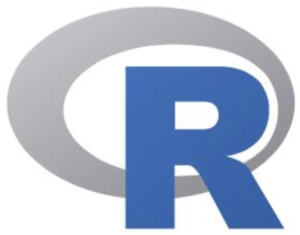
The CoTiMA R package performs meta-analyses of correlation matrices of repeatedly measured variables taken from studies that used different time intervals. Different time intervals between measurement occasions impose problems for meta-analyses because the effects (e.g. cross-lagged effects) cannot be simply aggregated, for example, by means of traditional fixed or random effects analysis. continue

Zlatkin-Troitschanskaia, O. & Toepper, M. (2021). Assessment of Student Learning Progress in Higher Education – Methodological Approaches and Results. In C. Hughes & M. Tight (Ed.), Learning Gain in Higher Education (International Perspectives on Higher Education Research, Vol. 14). Emerald Publishing Limited, (pp. 33-57). https://doi.org/10.1108/S1479-362820210000014004
Abstract:
This chapter outlines the challenges that research and practice in higher education have faced in measuring students' competences and learning outcomes. Particular attention is given to the systematic and institutional contexts in Germany. continue
Research Training Group (GRK) Digital Information Landscape and its Impact on Students’ Online Learning (DIAPASON)
We are pleased to announce that the Research Training Group DIAPAISON "Digital Information Landscape and its Impact on Students’ Online Learning" is funded by the Gutenberg Council for Young Researchers at the JGU Mainz. Five scholarships starting summer term 2021 will be awarded. The interdisciplinary GRK DIAPASON focuses on the structural and semantic analysis of the online information landscape in which today’s higher education students acquire a large amount of their domain-specific knowledge, and on the relation with student learning in higher education economics and medicine.

Kühling-Thees, C., Zlatkin-Troitschanskaia, O., Nagel, M.-T., Yamada, R. & Shirakawa, Y. (2021). Generic Skills of Economics and Educational Science Students – Insights from a German-Japanese Study. In E. Braun, R. Esterhazy & R. Kordts-Freudinger (Edt.). Research on Teaching and Learning in Higher Education (pp. 83-98). Münster: Waxmann.
Abstract: Assessing domain-specific and generic skills in higher education has gained significant importance worldwide. Recent curricular analyses have confirmed that the acquisition of domain-specific and generic skills is included as a learning outcome in the study manuals and module descriptions of most German and Japanese higher education study programs. continue


Molerov, D., Zlatkin-Troitschanskaia, O., Nagel, M.-T., Brückner, S., Schmidt, S. & Shavelson, R. (2020). Assessing University Students' Critical Online Reasoning Ability: A Conceptual and Assessment Framework With Preliminary Evidence. Frontiers in Education (online first). https://www.frontiersin.org/articles/10.3389/feduc.2020.577843/full
Nagel, M.-T., Schäfer, S., Zlatkin-Troitschanskaia, O., Schmer, C., Maurer, M., Molerov, D. & Brückner, S. (2020). How Do University Students’ Web Search Behavior, Website Characteristics, and the Interaction of Both Influence Students’ Critical Online Reasoning? Frontiers in Education (online first). https://www.frontiersin.org/articles/10.3389/feduc.2020.565062/full
Schmidt, S., Zlatkin-Troitschanskaia, O., Roeper, J., Klose, V., Weber, M., Bültmann, A.-K. & Brückner, B. (2020). Undergraduate Students’ Critical Online Reasoning—Process Mining Analysis. Frontiers in Psychology (online first). https://www.frontiersin.org/articles/10.3389/fpsyg.2020.576273/full
Zlatkin-Troitschanskaia, O., Beck, K., Fischer, J., Braunheim, D., Schmidt, S. & Shavelson, R. (2020). The Role of Students’ Beliefs When Critically Reasoning From Multiple Contradictory Sources of Information in Performance Assessments. Frontiers in Psychology (online first). https://www.frontiersin.org/articles/10.3389/fpsyg.2020.02192/full

The chair of business and economics education will be represented at various international meetings in 2021.


Annual meeting of NCME 8.-11. June 2021
Knowledge Acquisition in Higher Education Economics and its Relation to Students` Confidence
Schlax, J., Zlatkin-Troitschanskaia, O. & Nagel, M.
Annual meeting of ITC 9.-12. June 2021
Assessment of Higher Education Students’ Economic Knowledge in Germany and Japan – A
cross-national perspective on gender effects
Schlax, J., Zlatkin-Troitschanskaia, O., Walstad, W. B., Yamaoka, M., Asano, T., Abe, S. & Nagel, M.
Assessment of Knowledge Development Over the Course of a Bachelor`s Degree – Analyzing Dis-tinct Learning Patterns Using Internationally Established Standardized Tests
Schlax, J., Zlatkin-Troitschanskaia, Schmidt, S. & Walstad, W. B.
Epistemic Network Analyses of Eye Tracking Data on Students’ Graph Understanding.
Brückner, S., Schneider, J., & Zlatkin-Troitschanskaia
Students’ Critical Online Reasoning and its Influences
Nagel, M., Zlatkin-Troitschanskaia, O., Schmidt, S., Jurisch, J. & Molerov, D.

Brückner, S., Schneider, J., Zlatkin-Troitschanskaia, O. & Drachsler, H. (2020). Epistemic Network Analyses of Economics Students’ Graph Understanding: An Eye-Tracking Study. Sensors, 20(23), 6908.
To the article: click here.

Brückner S, Zlatkin-Troitschanskaia O, Küchemann S, Klein P and Kuhn J (2020) Changes in Students’ Understanding of and Visual Attention on Digitally Represented Graphs Across Two Domains in Higher Education: A Postreplication Study. Front. Psychol. 11:2090. doi: 10.3389/fpsyg.2020.02090
To the article: click here

Brückner S., Zlatkin-Troitschanskaia O., Pant H.A. (2020) Standards für pädagogisches Testen. In: Moosbrugger H., Kelava A. (Hrsg.) Testtheorie und Fragebogenkonstruktion (3. Aufl., S. 217-248) . Springer, Berlin, Heidelberg.
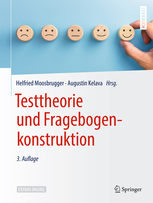 To the educational book: click here
To the educational book: click here

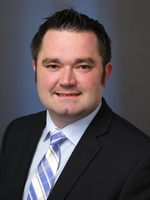
Habilitation Roland Happ
With his habilitation lecture on 30.06.2020, Dr. Roland Happ completed his habilitation procedure at the Department of Law and Economics at JGU Mainz. The title of the lecture was "Internationally comparative analyses of economic competencies of young adults". The colloquium awarded him the venia legendi for the subject "Educational Science with a focus on vocational and business and economics education". His habilitation thesis is entitled "The influence of the migration background on different facets of economic knowledge - implications for economic education". We congratulate PD. Dr. habil. Roland Happ for his performance.

Marie-Theres Nagel new member of the Gutenberg-Academy
The doctoral student Marie-Theres Nagel was accepted as a junior member of the Gutenberg-Academy, which funds and fosters up to 25 of the most outstanding PhD candidates from all departments of Johannes Gutenberg University. We congratulate Ms. Nagel for this achievement.
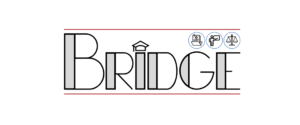

New Project Funding: BRIDGE (Performance Assessment of Domain-specific and Generic Use of Online Media by Young Professionals)
We are pleased to announce that the new collaborative project BRIDGE is funded by the German Federal Ministry of Education and Research (BMBF) for a period of three years (2020 to 2023). BRIDGE is a collaborative effort between GU Frankfurt (Principal Investigators: Alexander Mehler, Jochen Roeper) and JGU Mainz (Principal Investigator Matthias Cornils) and is headed by Olga Zlatkin-Troitschanskaia (JGU). The aim of BRIDGE is to assess the influence of online media used in job-specific educational processes. In a longitudinal design, the general critical online reasoning (GEN-COR) and domain-specific critical online reasoning (DOM-COR) of young professionals from three different domains – medicine, law, and teacher training – are measured using performance assessments and analyzed using innovative approaches such as educational data mining and text mining based on approaches from computer linguistics and learning analytics. The core of the project is an online training program that teaches participants how to critically deal with online information by fostering self-learning strategies.
 Roeper, J., Zlatkin-Troitschanskaia, O., Klose, V., Nagel, M.-T. & Schlax, J. (2020). A New Approach to Analyzing the Development of Domain-Specific Knowledge Among Undergraduate Medical Students Using Learning Scores. American Journal of Biomedical Science & Research, 7(4).: 319-323.
Roeper, J., Zlatkin-Troitschanskaia, O., Klose, V., Nagel, M.-T. & Schlax, J. (2020). A New Approach to Analyzing the Development of Domain-Specific Knowledge Among Undergraduate Medical Students Using Learning Scores. American Journal of Biomedical Science & Research, 7(4).: 319-323.
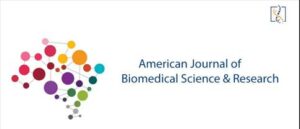
Abstract: continue

Zlatkin-Troitschanskaia, O., & Schlax, J. (2020). Entry Assessment of  Student Learning Preconditions in Higher Education – Implications for the Transition from Secondary to Tertiary Education in Germany. European Review: 1–18.
Student Learning Preconditions in Higher Education – Implications for the Transition from Secondary to Tertiary Education in Germany. European Review: 1–18.
Abstract: continue


ELMaWi-Transfer – Fostering subject-specific competencies of prospective teachers using video-based ELMaWi Tools
The research proposal “ELMaWi-Transfer - Fostering subject-specific competencies of prospective mathematics and economics teachers using video-based ELMaWi tools” by the Chair of Business Education (Dr. Christiane Kuhn, Prof. Dr. Olga Zlatkin-Troitschanskaia, Hannes Saas) has been positively evaluated and recommended for further funding by the Federal Ministry of Education and Research. The transfer project was submitted in cooperation with the Leibniz Institute for Science and Mathematics Education in Kiel (Department of Mathematics Education) and represents a continuation of the successful joint ELMaWi project (https://www.eng.elmawi.de/). The expected project start date is 1 July 2020.
Contact: christiane.kuhn@uni-mainz.de; hannes.saas@uni-mainz.de

 KoKoHs-Map:Mapping Competency Acquisition in Higher Education and its Influences (2020 – 2020)
KoKoHs-Map:Mapping Competency Acquisition in Higher Education and its Influences (2020 – 2020)
The research proposal “KoKoHs-Map: Map of Competence Acquisition in Higher Education and Its Influencing Factors. A Meta-Study on the Results of the KoKoHs Funding Initiative (2011-2020)" by the Chair of Business and Economics Education (Prof. Dr. Olga Zlatkin-Troitschanskaia, Miriam Toepper) has been positively evaluated and recommended for further funding by the Federal Ministry of Education and Research. The project was submitted in cooperation with the HU Berlin (Prof. Dr. Hans Anand Pant) and represents a continuation of the successful joint KoKoHs project. The project starts on 1 January 2020.
Numerous competence models and test procedures have been developed within the scope of the KoKoHs funding initiatives since 2011. Using these validated instruments, the 39 project consortia surveyed students' competencies in a broad range of subjects and across disciplines. In KoKoHs, an (inter)nationally unique database on the level, acquisition and development of students' competences was created. This data is being meta-analytically evaluated in the BMBF-funded collaborative project "KoKoHs-Map“ to gain cross-project insights into academic competence acquisition. The aim is to create a differentiated research map on the acquisition of students’ competencies and their key influencing factors
Contact: info@kompetenzen-im-hochschulsektor.de

 PLATO: Funding by the German Federal State Rhineland-Palatinate
PLATO: Funding by the German Federal State Rhineland-Palatinate
PLATO has been granted funding by the German federal state Rhineland-Palatinate, starting in 2019 up until 2023. The research platform is funded at the University of Mainz and is subject to regular evaluation. The aim of the research platform is to consolidate and focus the cooperation in PLATO on the basis of third-party-funded collaborative programs.
RMU Funding: The Effects of the Internet on Learning in Higher Education
PLATO was granted funding from the initiative fund of the Rhine-Main Universities (RMU), from 2018 until 2020. The RMU funding has been used to consolidate pilot studies on the effects of the Internet on learning and to prepare a basis for a cross-university application to solidify PLATO collaboration structures.
(for more information click here.)
 Dr. Roland Happ (Chair of Business and Economic Education Prof. Dr. Olga Zlatkin-Troitschanskaia) gave a lecture on behalf of the Federal Association for Economic Development and Foreign Trade in Mainz on 04.09.2019 in front of a delegation of 20 university professors. The delegation comes from the Guangdong Agriculture Industry Business Polytechnic College in China. The topic of the lecture was the economic knowledge of German and Chinese students.
Dr. Roland Happ (Chair of Business and Economic Education Prof. Dr. Olga Zlatkin-Troitschanskaia) gave a lecture on behalf of the Federal Association for Economic Development and Foreign Trade in Mainz on 04.09.2019 in front of a delegation of 20 university professors. The delegation comes from the Guangdong Agriculture Industry Business Polytechnic College in China. The topic of the lecture was the economic knowledge of German and Chinese students.

 On October 14th 2019 an internal research colloquium of the Chairs of Business and Economics Education will take place. Therefore, the secretariats and offices will not be available on this day.
On October 14th 2019 an internal research colloquium of the Chairs of Business and Economics Education will take place. Therefore, the secretariats and offices will not be available on this day.
 The secretariat of the chair of Prof. Zlatkin-Troitschanskaia will not be available during October 7th till 11th 2019. In urgent cases, please get in contact with the staff or via mail: lstroitschanskaia@uni-mainz.de
The secretariat of the chair of Prof. Zlatkin-Troitschanskaia will not be available during October 7th till 11th 2019. In urgent cases, please get in contact with the staff or via mail: lstroitschanskaia@uni-mainz.de
 Zlatkin -Troitschanskaia, O., Jitomirski, J., Happ, R., Molerov, D., Schlax, J., Kühling-Thees, C., Förster, M. & Brückner, S. (2019). Validating a Test for Measuring Knowledge and Understanding of Economics Among University Students. Zeitschrift für Pädagogische Psychologie, 32(2), 119–133.
Zlatkin -Troitschanskaia, O., Jitomirski, J., Happ, R., Molerov, D., Schlax, J., Kühling-Thees, C., Förster, M. & Brückner, S. (2019). Validating a Test for Measuring Knowledge and Understanding of Economics Among University Students. Zeitschrift für Pädagogische Psychologie, 32(2), 119–133.
Abstract:
University students' knowledge and understanding of economics have mostly been investigated cross-sectionally; however, longitudinal analyses are needed to determine which factors influence knowledge development and to draw valid conclusions based on test results. In the WiWiKom II project, a quasi-experimental longitudinal study was conducted assessing bachelor students of business and economics over the course of their studies in Germany (N = 39 universities). In this project, running from 2016 – 2019, the test-takers complete the WiWiKom II-test of economic knowledge (adapted TUCE4G and TEL4G items) and a general cognitive ability test (BEFKI 11) at four measurement points, each one year apart. In this paper, we describe the validation of the test instrument based on the data from the first measurement (winter semester 2016/17). We compare students' results on the economic knowledge test and the general cognitive abilities test between first-year students of economic sciences (N = 3,710) and social sciences (N = 1,347) to determine the discriminant validity of the economic knowledge test. The findings from the confirmatory factor analyses presented here show that the items on general cognitive ability and economic knowledge are empirically separable. As expected, there were no differences in the factorial structure between the comparison groups (economic vs. social science students) at the beginning of their studies.
 The scientific transfer project of the research program “KoKoHs: Modeling and Measuring Competencies in Higher Education – Validation and Methodological Innovations” cordially invites you to our international conference on September 12-13, 2019, at Johannes Gutenberg University in Mainz, Germany.
The scientific transfer project of the research program “KoKoHs: Modeling and Measuring Competencies in Higher Education – Validation and Methodological Innovations” cordially invites you to our international conference on September 12-13, 2019, at Johannes Gutenberg University in Mainz, Germany.
At the conference, the main results of the KoKoHs program will be presented and critically discussed with world-renowned international experts. We aim to encourage debates on the practical use of developed models and instruments as well as on conceptional and methodological innovation in competency assessment. One focus will be on national and international perspectives on transferring the validated test instruments into practice. We provide an outlook on the next working phase, in which the KoKoHs competence measurement instruments will be transferred into university practice.
The conference will take place on September 12-13, 2019, starting at 10:00 AM at the Helmholtz Institute at Johannes Gutenberg University Mainz.
Participation in the conference is free of charge, and registration is possible until September 2, 2019, by sending us a brief e-mail: info@kompetenzen-im-hochschulsektor.de
For further information, please see our conference program attached.
We are looking forward to your attendance.
 Klein, P., Küchemann, S., Brückner, S., Zlatkin-Troitschanskaia, O., & Kuhn, J. (2019). Student understanding of graph slope and area under a curve: A replication study comparing first-year physics and economics students. Physical Review Physics Education Research, 15(2), 1-17.
Klein, P., Küchemann, S., Brückner, S., Zlatkin-Troitschanskaia, O., & Kuhn, J. (2019). Student understanding of graph slope and area under a curve: A replication study comparing first-year physics and economics students. Physical Review Physics Education Research, 15(2), 1-17.
https://journals.aps.org/prper/pdf/10.1103/PhysRevPhysEducRes.15.020116
Abstract:
In this eye-tracking study, we compared graph comprehension between economics and physics students. The findings broadly confirm that both groups of students have the same visit duration on the graphs, consequently proving total dwell time to be an inadequate predictor of performance. We identify that attention on concept-specific areas of interest within the graphs discriminates the correct from the incorrect performers. Furthermore, we analyzed the confidence level of the two student groups and found that physics students have a higher ability to correctly judge their own performance compared to economics students. Overall, our results highlight the importance of an instructional adjustment towards a more mathematical- and graphical-based education.
 Jeschke, C., Kuhn, C., Lindmeier, A., Zlatkin-Troitschanskaia, O., Saas, H. & Heinze, A. (2019). What is the Relationship Between Knowledge in Mathematics and Knowledge in Economics? Investigating the professional knowledge of (pre-service) teachers trained in two subjects. Zeitschrift für Pädagogik, 4, 511-524. https://dx.doi.org/10.3262/ZP1904511
Jeschke, C., Kuhn, C., Lindmeier, A., Zlatkin-Troitschanskaia, O., Saas, H. & Heinze, A. (2019). What is the Relationship Between Knowledge in Mathematics and Knowledge in Economics? Investigating the professional knowledge of (pre-service) teachers trained in two subjects. Zeitschrift für Pädagogik, 4, 511-524. https://dx.doi.org/10.3262/ZP1904511
Abstract:
Content knowledge (CK) and pedagogical content knowledge (PCK) are considered key aspects of teacher competence. Although teacher education and training programs across disciplines focus on the development of CK and PCK, there is little evidence of whether teachers trained in two subjects benefit from reciprocal effects between knowledge in these subjects. To approach this question, we investigated the correlation between the CK and PCK in mathematics and economics of N = 96 pre- and in-service teachers trained in both subjects. We found a substantial correlation between CK and PCK within a subject and between corresponding knowledge components across subjects, with CK in mathematics related also to PCK in economics. We found that although teachers’ professional knowledge structure mirrored domains, CK in mathematics could be useful for teaching economics.
 The Chair for Business and Economics Education of Prof. Dr. Zlatkin-Troitschanskaia will be represented again this year with several presentations and symposia at the following international conferences: 18th Biennial EARLI Conference (12-16 August 2019, Aachen), WERA 2019 Focal Meeting (05-08 August 2019, Tokyo) as well as at the Annual Conference of the Section Vocational and Business Education (BWP) (25-27 September 2019, Graz). Please refer to the respective conference program for
The Chair for Business and Economics Education of Prof. Dr. Zlatkin-Troitschanskaia will be represented again this year with several presentations and symposia at the following international conferences: 18th Biennial EARLI Conference (12-16 August 2019, Aachen), WERA 2019 Focal Meeting (05-08 August 2019, Tokyo) as well as at the Annual Conference of the Section Vocational and Business Education (BWP) (25-27 September 2019, Graz). Please refer to the respective conference program for
further details.
 Dr. Roland Happ has held a Visiting Professorship at the Mori Arinori Institute for Higher Education and Global Mobility of Hitotsubashi University in Tokyo (Japan) since April 2019. This position supports further intensive cooperation with the Japanese institute.
Dr. Roland Happ has held a Visiting Professorship at the Mori Arinori Institute for Higher Education and Global Mobility of Hitotsubashi University in Tokyo (Japan) since April 2019. This position supports further intensive cooperation with the Japanese institute.

 International conference of the SUCCESS project and corresponding transfer workshop
International conference of the SUCCESS project and corresponding transfer workshop
In the context of the research project "SUCCESS - Study Success and Study Opportunities for Refugees" the chair under Professor Olga Zlatkin-Troitschanskaia hosted an international conference and corresponding transfer workshop from December 4 -6, 2019 at Humboldt-Universität zu Berlin. At the international conference "Digital Approaches to Increasing Equity in Higher Education - Opening Universities for Refugees", the current, globally leading projects and findings on the successful university integration of refugees were presented and critically discussed.
Further information on the events, their programmes and the SUCCESS project can be retrieved from the project website by following the link https://success-eng.uni-mainz.de/events/.
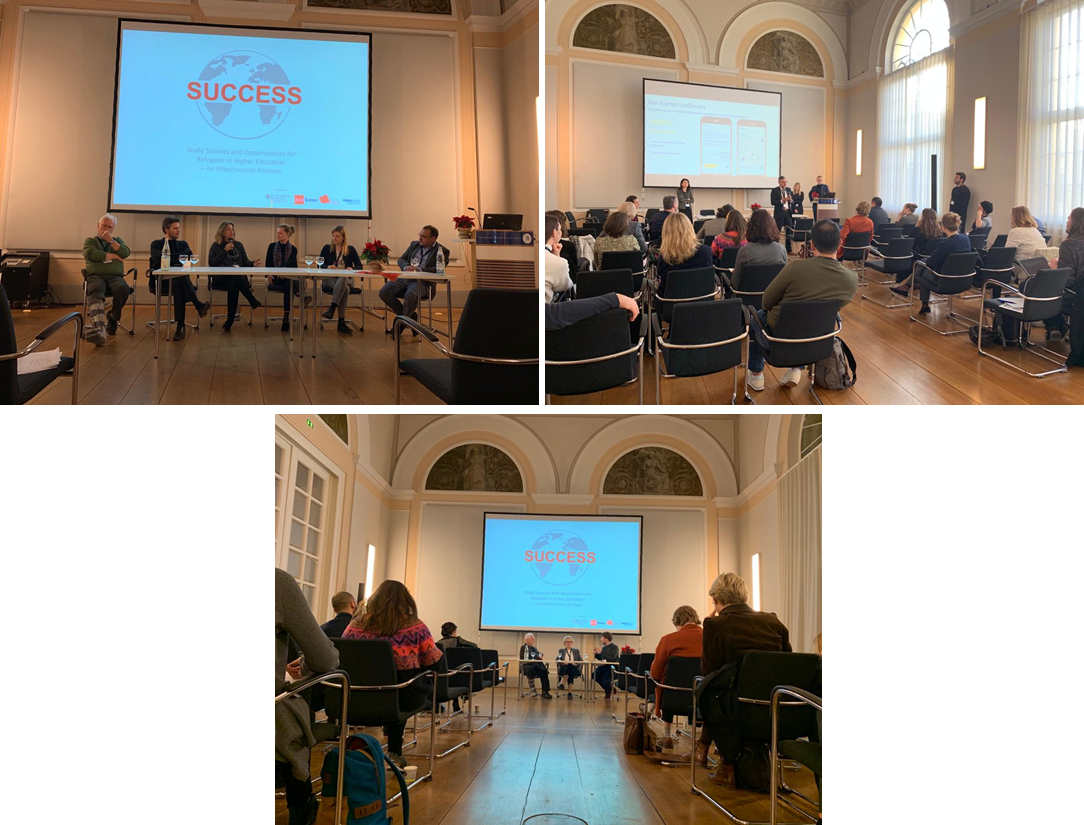
 Lecture series on “Challenges through Populism” at JGU – Answers from business and economics education
Lecture series on “Challenges through Populism” at JGU – Answers from business and economics education
 Dr. Christiane Kuhn and Dr. Sebastian Brückner (Department of Business and Economics Education) were invited to present the perspective of business and economics education in the lecture series "Challenges through Populism" at JGU. In their lecture entitled "Fact or Fake - Significance and Implications for Educational Processes in the Context of Digitalization" on 29 October 2019, they demonstrated on an evidence-based basis the explosive nature of assessing pupils and students in their competence to critically use and evaluate information, and the necessity to promote it at an early stage. Actively fostering this competence to counteract the arbitrary use of media during instruction represents a central challenge and requires its diagnosis.
Dr. Christiane Kuhn and Dr. Sebastian Brückner (Department of Business and Economics Education) were invited to present the perspective of business and economics education in the lecture series "Challenges through Populism" at JGU. In their lecture entitled "Fact or Fake - Significance and Implications for Educational Processes in the Context of Digitalization" on 29 October 2019, they demonstrated on an evidence-based basis the explosive nature of assessing pupils and students in their competence to critically use and evaluate information, and the necessity to promote it at an early stage. Actively fostering this competence to counteract the arbitrary use of media during instruction represents a central challenge and requires its diagnosis.
 International KoKoHs Conference, September 11-13, 2019, Mainz
International KoKoHs Conference, September 11-13, 2019, Mainz
On September 11 - 13 2019, the international conference of the research program “Models and Instruments for the Assessment of Competencies in Higher Education – Validation and Methodological Innovations” (KoKoHs), which is funded by the German Federal Ministry for Education and Research (BMBF), was hosted by Prof. Dr. Olga Zlatkin-Troitschanskaia and Prof. Dr. Hans Anand Pant at the Helmholtz Institute at the Johannes Gutenberg University Mainz. Participants comprised around 70 members of the research projects as well as other researchers and practitioners from higher education. The aim of the conference was to present central research results as well as to critically reflect on possibilities for transfer into practice, based on exchange with renowned international experts. For more information, please visit: https://www.kompetenzen-im-hochschulsektor.de/veranstaltungen/
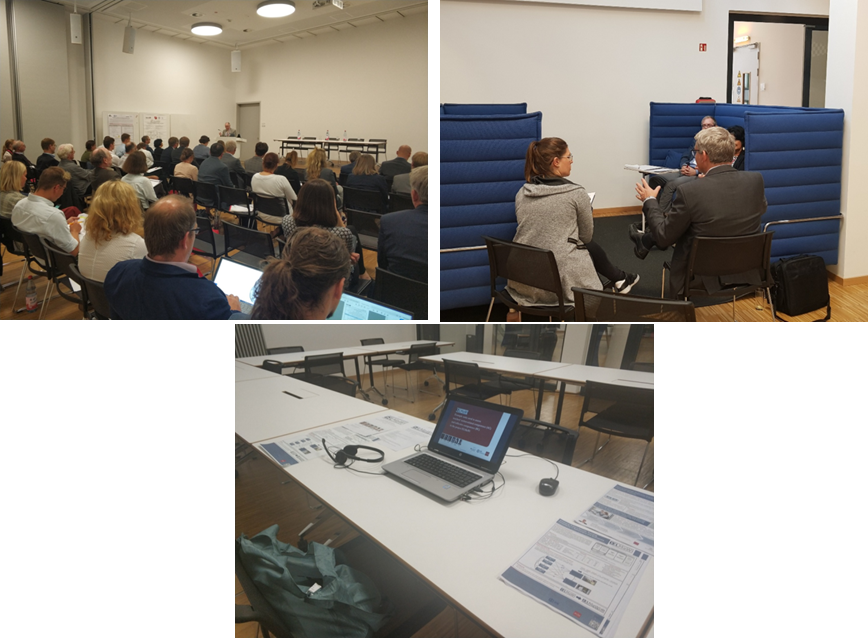
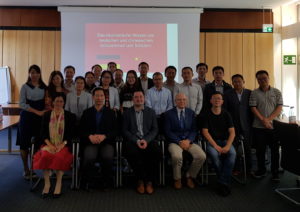
Lecture for Chinese delegation
Prof. Dr. Klaus Beck and Dr. Roland Happ (Chair of Business and Economic Education Prof. Dr. Olga Zlatkin-Troitschanskaia) gave a lecture on behalf of the Federal Association for Economic Development and Foreign Trade in Mainz on 4 September 2019 in front of a delegation of 20 university professors from the Guangdong Agriculture Industry Business Polytechnic College in China. The topic of the lecture was the economic knowledge of German and Chinese students.
PLATO: International Conference 2019
The International PLATO Conference took place at Johannes Gutenberg University in Mainz, Germany, on 13-14 September 2019. The conference focused on the latest research results on digital learning in higher education. New findings from computer science, communication science, linguistics, education, psychology and from different interdisciplinary studies on students’ use of digital media over their course of study were presented. For example, it was shown that media use differs significantly between students in economics, social sciences, physics, and medicine, and it correlates with both positive and negative effects on the acquisition of domain-specific knowledge over the course of higher education studies. Moreover, the program included numerous keynotes and critical discussions by excellent international researchers. A stimulating exchange throughout the conference strengthened the synergies between the PLATO researchers and the participating experts.
Contact: plato@uni-mainz.de
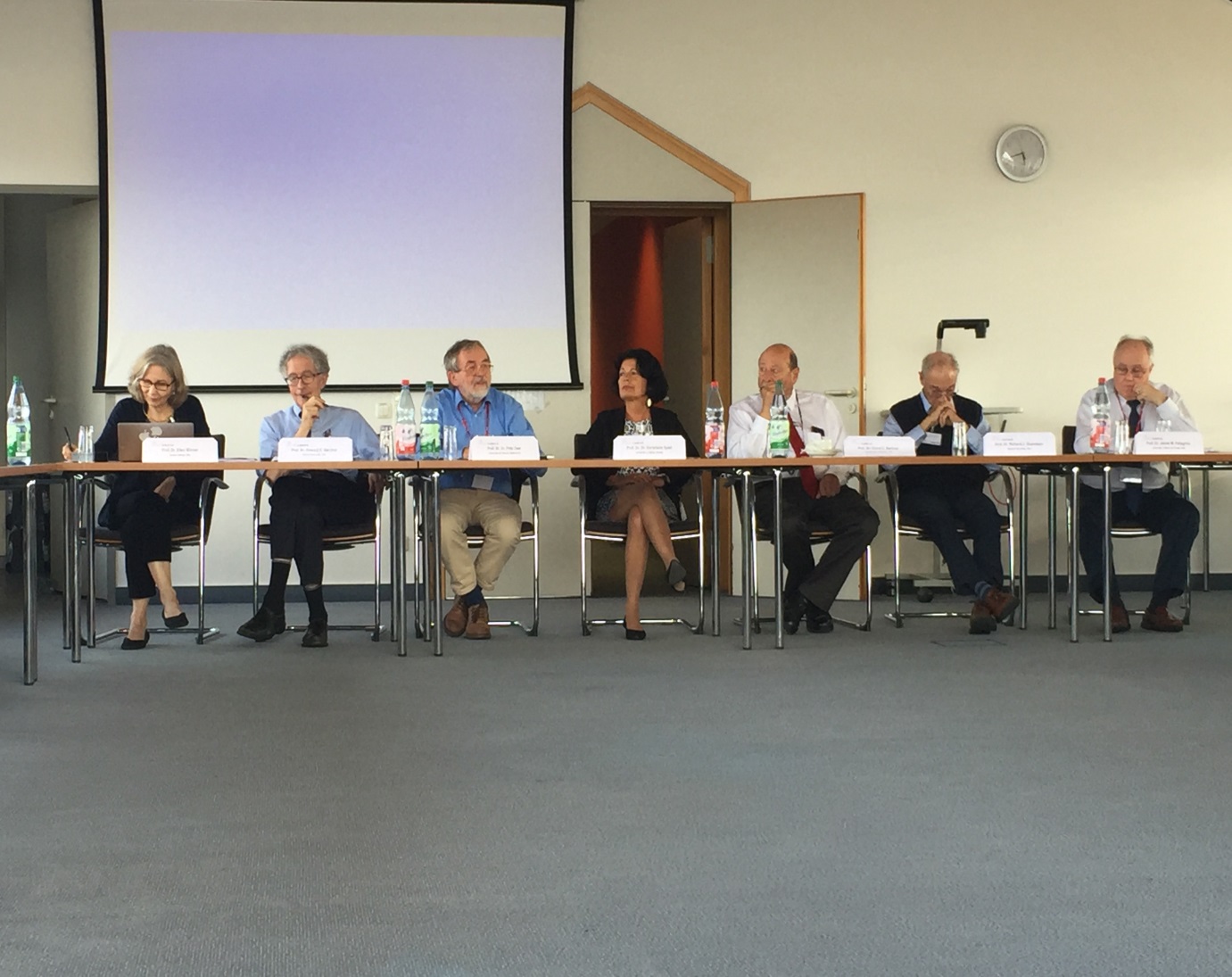
The interdisciplinary collaborative research program "Positive Learning in the Age of Information" (PLATO) has been granted funding by the German federal state Rhineland-Palatinate, starting in June 2019, and is receiving additional funding from the RMU Fund. For further information on PLATO, visit our website.
01.07.2019: Chair of Business and Economics Education receives funding to promote teacher training in vocational education
 The proposal for “Technology and Business: Integrated Education (TWIND)”, submitted by the Chair of Business and Economic Education and its partners, was positively evaluated in the Teacher Training Quality Campaign funded by the Federal Ministry of Education and Research (BMBF).
The proposal for “Technology and Business: Integrated Education (TWIND)”, submitted by the Chair of Business and Economic Education and its partners, was positively evaluated in the Teacher Training Quality Campaign funded by the Federal Ministry of Education and Research (BMBF).
Over the next four years, JGU will receive EUR 1.2 million to develop digital teaching-learning tools to support an effective training of prospective teachers in vocational education. The collaborative project of JGU Mainz, Technische Universität Darmstadt, Universität Kassel und Pädagogische Hochschule Schwäbisch Gmünd receives EUR 2.4 million. The TWIND project aims to interlink economic, technical and general education didactics.
Contact:
Dr. Christiane Kuhn
e-mail: christiane.kuhn@uni-mainz.de
PLATO has been granted funding from the initiative fund of the Rhine-Main Universities (RMU). The RMU funding will be used to consolidate pilot studies and prepare a cross-university application to solidify PLATO collaboration structures (for more information, see RMU-Website).
Zlatkin-Troitschanskaia, O., Kuhn, C., Brückner, S. & Leighton, J. P. (2019). Evaluating a technology-based assessment (TBA) to measure teachers’ action-related and reflective skills. International Journal of Testing (IJT), 19(2), 148–171. https://doi.org/10.1080/15305058.2019.1586377
Abstract:
Teaching performance can be assessed validly only if the assessment involves an appropriate, authentic representation of real-life teaching practices. Different skills interact in coordinating teachers’ actions in different classroom situations. Based on the evidence-centered design model, we developed a technology-based assessment framework that enables differentiation between two essential teaching actions: action-related skills and reflective skills. Action-related skills are necessary to handle specific subject-related situations during instruction. Reflective skills are necessary to prepare and evaluate specific situations in pre- and postinstructional phases. In this article, we present the newly developed technology-based assessment to validly measure teaching performance, and we discuss validity evidence from cognitive interviews with teachers (novices and experts) using the think-aloud method, which indicates that the test takers’ respective mental processes when solving action-related skills tasks are consistent with the theoretically assumed knowledge and skill components and depend on the different levels of teaching expertise.
 ELMaWi transfer workshop
ELMaWi transfer workshop
On 3 May 2019, at the invitation of the Chair of Business and Economics Education (Dr. Christiane Kuhn, Prof. Dr. Olga Zlatkin-Troitschanskaia, and Hannes Saas), a lively exchange took place at the Johannes Gutenberg University Mainz between representatives of university and practice for the implementation of competence orientation in teacher training. Groundbreaking possibilities for optimizing teacher training in line with practical needs in the 21st century and preparing prospective teachers for the complex demands of teaching at an early stage were presented and discussed. Further information can be found on the homepage of the BMBF-funded ELMaWi project: https://www.elmawi.de/transfer-in-die-praxis/

International Conference with Transfer Workshop from 04-06, December 2019 at Humboldt University Berlin
We are pleased to announce that we are holding an International Conference and Transfer Workshop for our collaborative project SUCCESS – Study Success and Study Opportunities for Refugees at the Humboldt University in Berlin, Germany, from December 4-6, 2019.
The title of the conference is: Digital Approaches to Increasing Equity in Higher Education – Opening Universities for Refugees
We will be discussing opportunities for refugees in higher education with a particular focus on the provision of digital education. It will be explored whether existing online educational offers actually facilitate the integration of prospective students with a flight background into their host country – including regular universities – and how refugees can be more successfully integrated into higher education.
We would be delighted to have you participate and kindly ask you to register by sending us an e-mail to success@uni-mainz.de
We are looking forward to seeing you at our conference in Berlin and to exchanging ideas with you!
Kind regards,
Prof. Dr. Olga Zlatkin-Troitschanskaia and the SUCCESS team
Jeschke, C., Kuhn, C., Lindmeier, A., Zlatkin-Troitschanskaia, O., Saas, H. & Heinze, A. (2019). Performance assessment to investigate the domain-specificity of instructional skills among pre-service and in-service teachers of mathematics and economics. British Journal of Educational Psychology. https://doi.org/10.1111/bjep.12277
Abstract:
Key elements of instructional quality include the teacher's ability to immediately react in domain‐specific classroom situations. Such skills – defined as action‐related skills – can only be validly assessed using authentic representations of real‐life teaching practice. However, research has not yet explained how teachers apply domain‐specific knowledge for teaching and to what extent action‐related skills are transferable from one domain to another. Our study aims to examine (1) the relationship between action‐related skills, content knowledge, and pedagogical content knowledge, and (2) the domain specificity of action‐related skills of (prospective) teachers in the two domains of mathematics and economics. We examined German pre‐service and in‐service teachers of mathematics (N = 239) and economics (N = 321), including n = 96 (prospective) teachers who teach both subjects. Action‐related skills in mathematics and economics were measured using video‐based performance assessments. Content knowledge and pedagogical content knowledge were assessed using established paper–pencil tests. Correlation analyses, linear regressions, and a path model were applied. In mathematics and economics, we find a similar pattern of moderate correlations between action‐related skills, content knowledge, and pedagogical content knowledge. Moreover, a significant correlation between action‐related skills in mathematics and economics can be explained almost entirely by underlying relations between content knowledge and pedagogical content knowledge in both domains. Our findings suggest that action‐related skills empirically differ from domain‐specific knowledge and should be considered as domain‐specific constructs. This indicates that teacher education should not only focus on domain‐specific teacher knowledge, but may also provide learning opportunities for action‐related skills in each domain.
On May 3, 2019, at the invitation of the Chair of Business and Economics Education (Prof. Dr. Olga Zlatkin-Troitschanskaia, Dr. Christiane Kuhn and Hannes Saas), a lively exchange between representatives of universities, state seminars for teaching and schools for the practical implementation of competence orientation in teacher training took place at the Johannes Gutenberg University Mainz. In addition to central findings on the measurement and promotion of subject-specific instruction skills among (prospective) teachers of mathematics and economics from the BMBF-funded ELMaWi project, groundbreaking possibilities were presented and discussed for optimizing teacher training in line with practical needs in the 21st century and preparing prospective teachers for the complex demands of teaching at an early stage. Further information can be found on the homepage of the BMBF-funded ELMaWi Project.

Our colleague Klaus Breuer passed away very unexpectedly on the 9th of June 2018. In him we have lost a driven, productive, creative, and approachable colleague, with whom we were personally obliged in the many years of his work in the economic education of our students, research, and in academic self-government.Klaus Breuer promoted the interdisciplinary and international dialogue in the research of economic education from very early on and reified this work in collaborative projects – most recently in the area of financial literacy, where he succeeded in founding and coordinating the new international research network “International Research Network on Financial Literacy as a 21st Century Skill – Cross Cultural Approaches to Research” as part of the World Education Research Association (WERA).
Likewise, the promotion of young scientific researchers was always a matter of particular importance. Under his primary and secondary advising, over a dozen dissertations were written, of which many were distinguished with research prizes.
Even after his retirement, he stayed connected with the university and his faculty and remained interested in their constitution and further development. In this way, we keep him in living memory.
Klaus Beck
Olga Troitschanskaia
Christian Dormann
